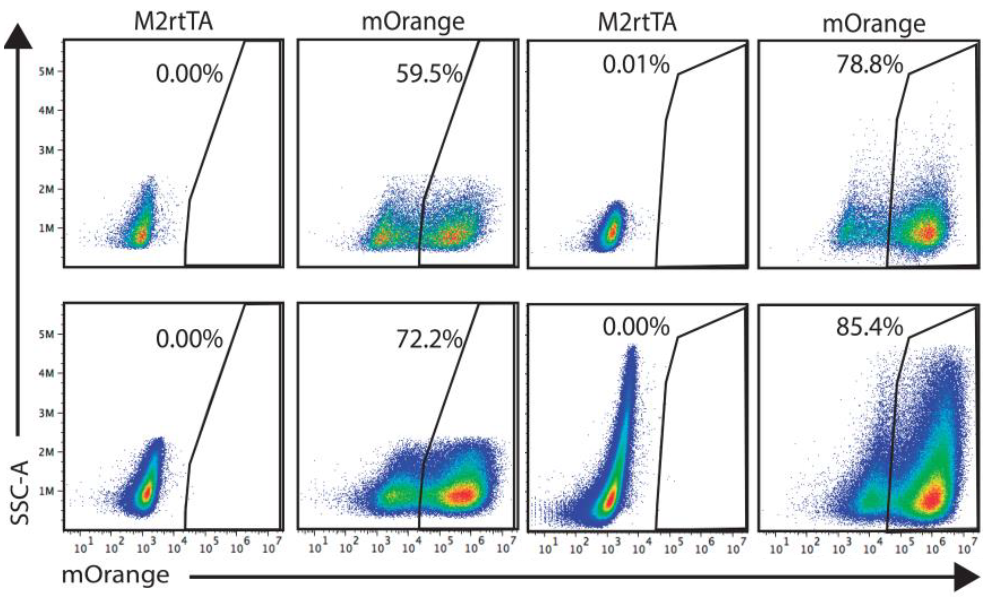Publications
Inducing Antigen Presentation in Tumor Cells by Direct Reprogramming

September 25, 2018
MSc. Thesis - University of Coimbra
Inês Maria Nascimento Caiado
Resources:
Summary
In cancer, genetic mutations result in the production of tumor specific antigens that are presented on Major Histocompatibility Complex (MHC) class I in tumor cells surface and by specialized antigen presenting cells (APCs) on MHC-I and II, mediating anticancer immune responses. However, tumor cells escape immune surveillance through mechanisms that include downregulation of MHC molecules at surface. In cancer immunotherapy, current approaches aim to restore tumor immunity, however they are either nonspecific or demand the complex identification of tumor antigens. Cellular reprogramming refers to the concept of changing the identity of cell towards another cell fate. Recently, our group has shown that three Transcription Factors (TFs) induce dendritic cell (DC) fate (professional APCs) in fibroblasts. Therefore, we aim at directly converting tumor cells into APCs with ability to present endogenous antigens, eliciting specific anticancer adaptive immune responses. Here, I have presented a strategy to induce antigen presentation in mouse melanoma and lung cancer cells through expression of DC-specific TFs. Pu.1, Irf8 and Batf3 (PIB) were expressed in 3LL carcinoma and B16 melanoma cell lines through a reprogramming proven lentiviral inducible expression system. The 3 TFs induced MHC molecules and the expression of the DC-specific marker Clec9a in tumor cell lines. Reprogramming efficiency was increased upon transduction with alternative pools of TFs or addition of cytokines essential for DC-development. In B16 and 3LL cells expressing ovalbumin (OVA), DC reprogramming induced OVA antigen presentation on MHC-I context and cohort of MHC-I/OVA+ B16 derived cells express MHC-II at the cell surface. Remarkably, purified induced MHC-II+ B16-OVA and 3LL-OVA cells were able to activate a CD8+T cell hybridoma expressing a T-cell receptor specific to the MHC-I/OVA complex. These data suggest that reprogrammed tumor cells acquired the competence for antigen presentation. Collectively, this study reports a strategy to directly reprogram tumor cells into an APC-like cell that combine DCs’ antigen processing and presenting abilities with the endogenous production of tumor antigens. These findings pave the way to generate an anticancer gene therapy to restore cancer immune surveillance.